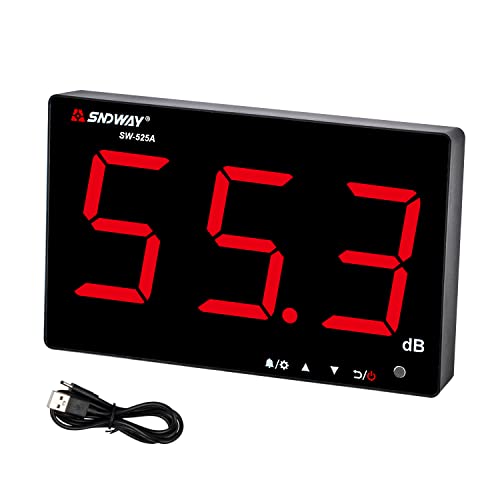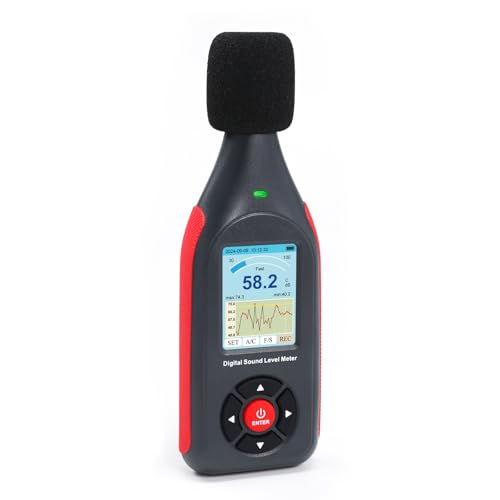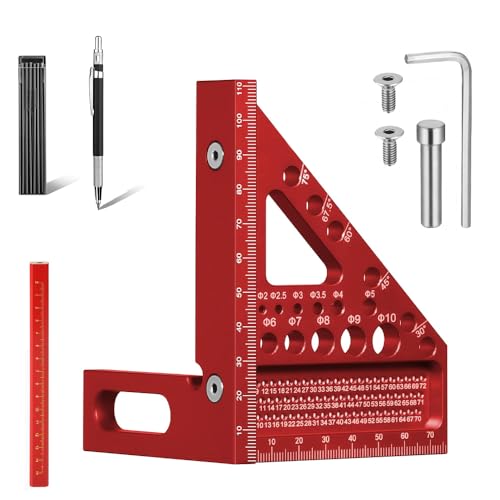What is a Decibel Meter and Why Do We Need One?
Understanding Decibel Meters
A decibel meter, also known as a sound level meter, is an essential tool used to measure sound intensity, specifically in decibels (dB). You might wonder why we would need such a device. Imagine you’re living near a busy road or work in a noisy environment; these sounds can often be disturbing or even harmful over time. A decibel meter allows us to quantify these sounds, helping us to understand their impact.
Real-Life Scenarios
For instance, if you’re planning to set up a music studio at home, knowing how sound levels fluctuate can ensure you maintain a noise-free environment for your recordings. Similarly, if you’re a business owner with a shop near a construction site, measuring sound levels can help you determine if it’s feasible to keep your doors open during peak working hours. Whether for personal use, workplace safety, or environmental awareness, a decibel meter proves invaluable.
Choosing the Right Decibel Meter for Your Needs
Identifying Your Purpose
Before diving into the specifics of different models, we first need to identify why you want a decibel meter. Are you looking to measure noise at home, in a workplace, or for outdoor activities? Different situations require different features. For home use, a basic model may suffice, while professionals or serious enthusiasts might require advanced features.
Budget Considerations
It’s also important to consider your budget. Decibel meters come in a range of prices, comparable to finding the right balance between a quality product and your financial capacity. We can find decent, user-friendly models starting at a modest price, while advanced, feature-rich devices can be significantly more costly. We encourage you to weigh the cost against how often you’ll use the meter and the level of accuracy required for your applications.
Key Features to Consider When Buying a Decibel Meter
Measurement Range
One of the key features to examine is the measurement range. This refers to the lowest and highest sound levels the device can measure. For everyday home use, a range of 30 to 130 dB is typically adequate, while for industrial applications or concerts, you might need a range that starts lower and extends higher.
Accuracy and Calibration
Accuracy is crucial. A decibel meter with a clear calibration system assures you that the readings are precise. Look for models that allow calibration adjustments, ensuring that you can maintain accuracy over time, particularly if you’re using the meter frequently.
Data Logging and Connectivity
Many modern decibel meters come with the capability to log data or connect to mobile devices. This feature can be particularly useful if you’re conducting long-term measurements or need to analyse data. Imagine being able to track noise levels over time and visualize trends—this can be beneficial both at home and in professional environments.
How to Use Your Decibel Meter Effectively
Getting Started
Using a decibel meter is relatively straightforward. First, ensure the device is fully charged or has fresh batteries. Familiarise yourself with the buttons and functions, typically indicated in the manual. Place the meter in the area where you want to measure sound without obstructing it.
Understanding Readings
When you take a measurement, understand the reading you see. A normal conversation might measure around 60 dB, while a lawnmower could reach 90 dB. If your readings exceed 85 dB over prolonged periods, this signals a potential hazard to hearing health. Be sure to document readings especially if monitoring sound levels for compliance or personal health.
Avoid Common Mistakes
It’s crucial to hold the meter correctly—away from your body to avoid capturing your own noise. Additionally, take readings from a distance, ideally at ear level for the most accurate results. Always remember that the surrounding environment can affect readings, so choose your measuring moments wisely.
Top Decibel Meters Recommended for Every Occasion
Home Use
For home environments or casual users, consider the simpler models that are straightforward and don’t overwhelm with features. These meters are portable, user-friendly, and provide reliable results for household activities such as monitoring TV noise levels or garden maintenance.
Professional Applications
If you work in construction, sound engineering, or any field requiring high precision, investing in more sophisticated models is advisable. We recommend looking for devices that provide a wider measurement range, advanced data logging, and connectivity options.
Outdoor Activities
For enthusiasts who enjoy outdoor events like concerts or sports, durable and weather-resistant models will serve well. These meters can handle varying environments and help ensure that sound levels remain within comfortable ranges for your audience.































